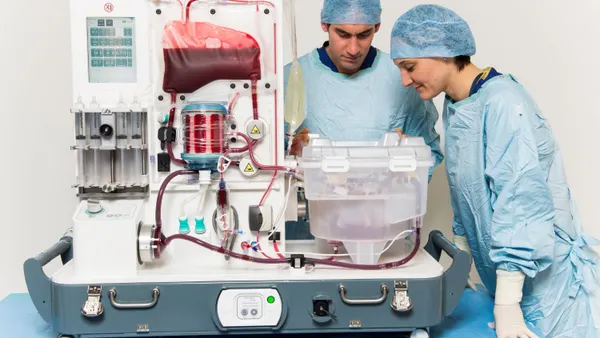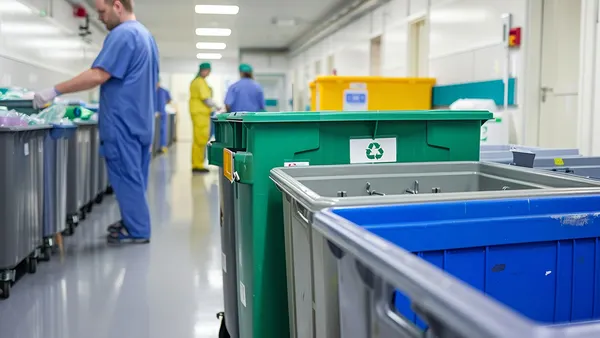Dive Brief:
- Tandem Diabetes Care and Abbott struck a partnership to develop automated insulin delivery systems using a dual glucose-ketone sensor, the companies said Tuesday.
- Automated insulin delivery systems pair continuous glucose monitors with insulin pumps to adjust insulin doses in real time. No systems on the market today incorporate ketone sensing.
- Tandem plans to integrate its available insulin delivery systems once Abbot’s new sensor is approved, Tandem Chief Strategy and Product Officer Elizabeth Gasser wrote in an emailed statement.
Dive Insight:
Abbott announced plans in 2022 to develop a glucose-ketone sensor. The ability to detect rising ketone levels can help people with diabetes avoid a life-threatening condition called diabetic ketoacidosis, the company said in a statement. The complication occurs when the body doesn’t have enough insulin to use blood sugar as energy, and instead begins breaking down fat for fuel, leading to a buildup of ketones.
Abbott and Tandem shared few specifics about timing or how they will integrate the new ketone sensing feature into an automated insulin delivery system.
“Our current focus is ensuring our systems will integrate with and support users who adopt Abbott’s glucose-ketone sensor when it launches,” Gasser wrote.
Tandem has been working on a tubeless feature for its more compact Mobi insulin pump, and is also developing a patch-pump.
Meanwhile, Abbott has been partnering with more insulin pump-makers. The company announced a similar agreement last month with Sequel MedTech, which is readying the U.S. launch of its Twiist AID system, to integrate with Abbott’s planned glucose-ketone sensor. Abbott also struck a deal with Medtronic last year to make a CGM that works exclusively with its insulin pumps and pens.














